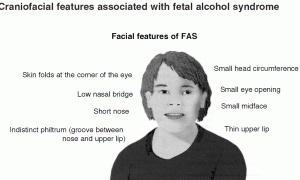
Typically associated with a bad case of the blues, stress can negatively affect much more than just your mood; it can also take a toll on your physical health. Illness often takes the blame for chronic headaches, insomnia or decreased productivity, but more often than not, stress is at the root of the problem.
Responsible for exaggerating the risk of developing several diseases, stress also increases heart rate, blood pressure, breathing rate, muscle tension and chronic pain. Avoiding all anxiety in life would be the ideal solution, yet, unfortunately, that is nearly impossible. A little careful planning, self-control, and self-acceptance, however, will help to decrease and relieve the painful symptoms of stress in your life.
Time Management
Time can be a major source of stress. Most people feel they never have enough time, which leads to cluttered schedules, longer days and sleepless nights. Learning to manage your time will eventually eliminate the negative impact a schedule can have on your health. Consider your own limitations from a realistic perspective.
Although you might be a wonder-parent, a stellar employee, and taking on a number of other exciting responsibilities and activities, sit down to decide how much you can handle while maintaining your sanity. Keep a date book or make lists to avoid over-committing your time. Learning to say no will also help you reduce stress and get in control of your free time.
When rearranging your schedule, pencil in personal time every day. Even if you can only squeeze in ten minutes, this downtime will help you reverse the negative effects of stress by slowing your heart and breathing rates, increasing blood flow, reducing muscle pain, improving concentration and confidence and reducing feelings of anger or frustration.
To plan your quiet time, make a list of activities you enjoy. These can be things like going for a walk, taking a bubble bath, spending time outside, journaling, crafting, spending time with good friends, gardening, reading or playing music. However you choose to relax, make it a top priority on your schedule – just as important as a meeting or a doctor’s appointment.
Develop Healthy Habits
Although it is impossible to completely eradicate anxiety, adopting a healthy lifestyle will help your body battle the symptoms of stress. Plenty exercise, ample sleep and a healthy diet will keep your body in good shape and help decrease stress-related problems.
One of the most powerful tools in the arsenal against stress, exercise both prevents and reduces anxiety. During physical exercise, the body releases chemicals known as endorphins. Endorphins reduce your body’s perception of pain, create a positive and energized feeling, and can act as a sedative. This means that when you exercise, your body self-medicates, helping you feel better.
Physical activity will also reduce stress by improving your overall health. Exercise lowers blood pressure, strengthens the heart, decreases body fat, strengthens bones and improves muscle tone, making you function better and improving self-esteem for an overall more positive outlook.
Exercise also improves the quality of sleep, which will reduce anxiety. An integral part of a health regimen, sleep is the time your body repairs its cells. Without proper sleep, the body cannot refuel, leaving you feeling lousy and muddled. An unclear mind can lead to irrational thoughts and increased worry.
To reduce daily stress, allow yourself to get enough sleep for your body to recover from the previous day. When you have slept long enough, you will wake up feeling fresh and rejuvenated, thinking clearly and functioning properly.
In addition, eating a balanced diet will prepare your body to deal with the stresses encountered each day. By eating regular, well-balanced meals, you will keep your body’s energy up and provide it with the necessary nutrients to carry you through the day with a clear head.
A well-nourished body repairs physical ailments more easily, leaving you feeling better physically and mentally. In addition to eating a balanced diet, reducing your caffeine and sugar intake will keep your energy levels consistent throughout the day. So, you can avoid the mid-afternoon or post coffee break crash that leaves you feeling sluggish and down.
Never self-medicate using drugs, alcohol or cigarettes. While these substances might provide temporary relief from anxiety and depression, they only mask the problem. Facing the cause head-on is the only way to eliminate the pain for good.
Take Control
Extreme anxiety can often come from feeling out of control. Maintaining a firm grasp on your situation will help you avoid this type of stress. You can gain control of your anxiety by being assertive, managing your emotions, and by forgiving.
An assertive person faces problems head-on. Rather than stewing and allowing feelings to build over time, you should express your concerns and be willing to make compromises. While many stress-inducers are out of your control, you can manage your reaction. Look at the big picture and try to get a new perspective on the situation. Rather than fixating on a negative aspect, find something positive. If you are stuck in line at the grocery store, use the time to practice meditative breathing.
Adjust your expectations. By lowering your expectations, you will find yourself pleasantly surprised more often. Learn to allow yourself to forgive others and yourself. Through forgiveness, you will be able to let go of resentments, which only serve to extend the anxiety from a stressful situation.
While stress will always be an integral part of everyday life, remember what is most important – your happiness and health. Take charge of your health by facing problems head-on and by making the changes that will bring you to a better place in life.
How do you manage stress?




Leave a comment
You must login or register to add a new comment.